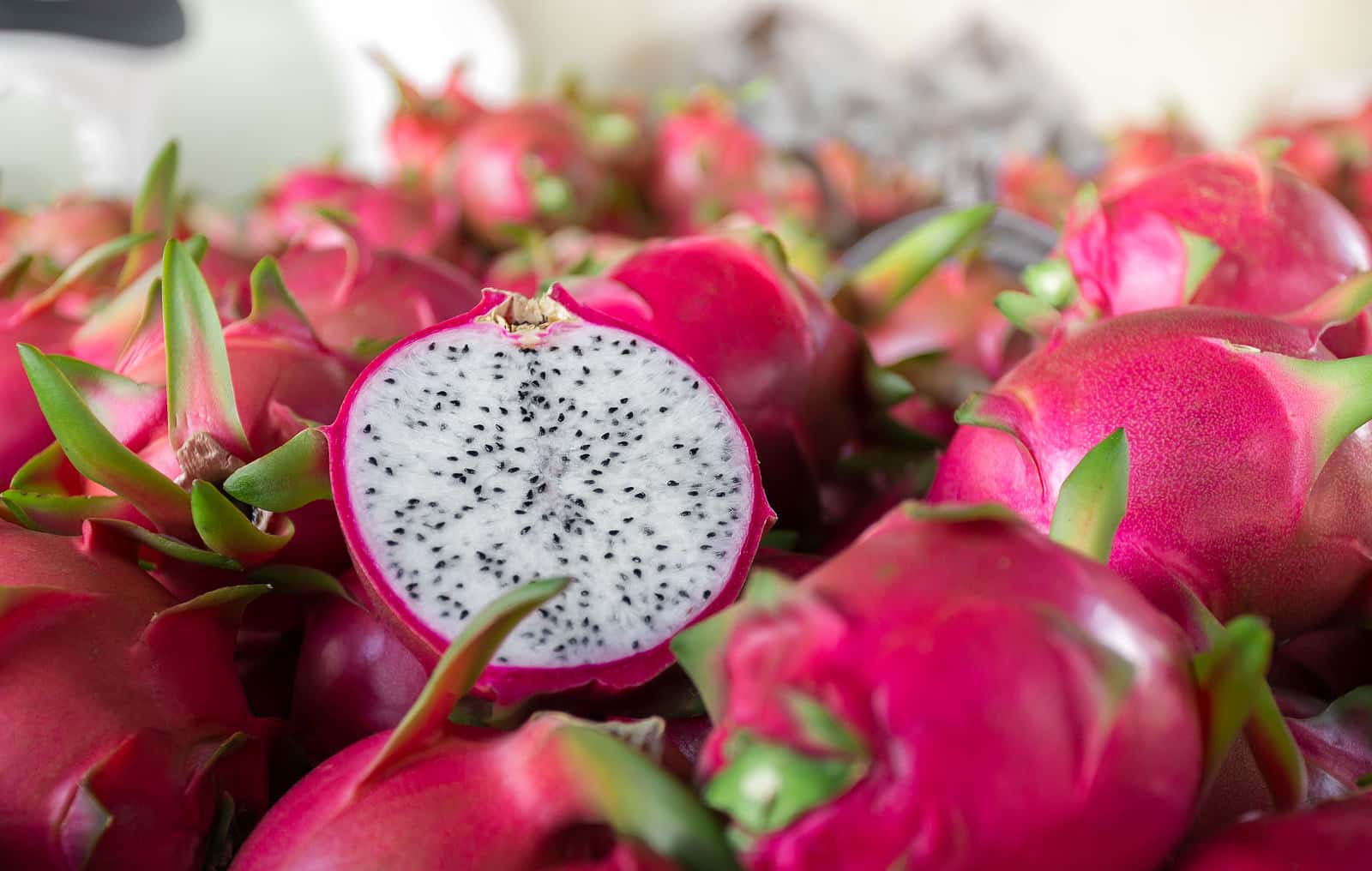
Have you seen a new product on supermarket shelves lately? Some stores are stocking dragon fruit juice, which might have you wondering what that is. One of our readers is wondering whether it has health benefits.
Is Dragon Fruit Juice Good for You?
Q. My spouse and I have begun drinking dragon fruit juice. We both like it very much, but we also find it has a fairly strong diuretic effect. Is this a result of the fruit?
A. Dragon fruit comes from a type of cactus (Hylocereus) native to southern Mexico and Central America. It now grows throughout the tropics. The red-fleshed version of this fruit (also called pitaya) is rich in the plant compound betalain.
We have not been able to find any evidence that it encourages urination. However, it does seem to improve blood vessel flexibility (American Journal of Clinical Nutrition, March 10, 2022).
Other Sources of Betalain:
Another food that is rich in betalain is beet root. In addition to red beets, Swiss chard, red amaranth greens and prickly pear cactus fruit also provide betalain (Encyclopedia of Food and Health, 2016). There is now ample evidence that beet root juice also improves blood vessel elasticity and lowers blood pressure (Critical Reviews in Food Science and Nutrition, 2021).
On the other hand, beet roots and greens are rich in natural nitrates, which contributes to nitric oxide formation (Nutrients, April 14, 2015). When blood vessels produce nitric oxide, they relax and blood pressure drops (Comprehensive Physiology, April 2015). There is, however, much less research on dragon fruit juice. We look forward to learning more about betalains in the future.
Citations
- Cheok A et al, "Betalain-rich dragon fruit (pitaya) consumption improves vascular function in adult men and women: a double-blind, randomized controlled crossover trial." American Journal of Clinical Nutrition, March 10, 2022. DOI: 10.1093/ajcn/nqab410
- Villaño D et al, "Colors: Health Effects." in Encyclopedia of Food and Health, 2016.
- Zamani H et al, "The benefits and risks of beetroot juice consumption: a systematic review." Critical Reviews in Food Science and Nutrition, 2021. DOI: 10.1080/10408398.2020.1746629
- Clifford T et al, "The potential benefits of red beetroot supplementation in health and disease." Nutrients, April 14, 2015. DOI: 10.3390/nu7042801
- Bohlen HG, "Nitric oxide and the cardiovascular system." Comprehensive Physiology, April 2015. DOI: 10.1002/cphy.c140052

